Gideon D. Wilonja is a talented creative whose work centres around storytelling that pushes the boundaries of representation and challenges gender norms in exploring themes of identity and culture across various mediums including theatre, writing, fashion and film. Browse through Gideon’s portfolio and you will discover a sensibility that shows vulnerability and empowerment communicated through his own experience as a Congolese-born Melbourne-based queer Black artist. In this interview Gideon shares about the catharsis of creating work that speaks to his younger self; where he finds inspiration; and the upcoming theatre project “Do Black Boys Go To Heaven?”.
Tell us a little bit about yourself and your art practice.
I was born in Congo, grew up in Kenya, then in 2009 migrated to Australia with my family. I work predominantly in theatre performance, writing, artistic direction and fashion. My work predominantly explores masculinity through a queer lens, I tend to challenge traditional ideals of masculinity, by taking femininity (which often times is perceived as weakness when presented in the male form) and celebrate it through a queer Black male body.
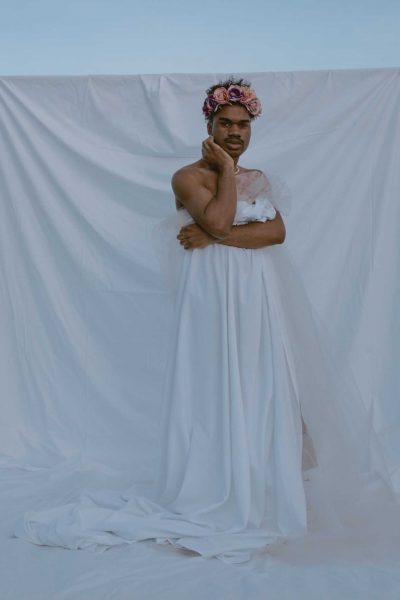
How did you start your creative practice and why?
From a young age I have always been in love with the art of storytelling, and growing up in a culture that values stories had the greatest impact with me wanting to become a storyteller. My first encounter with creating stories for performance began in church, I was put in charge of creating yearly Easter and Christmas plays. And as a person who for the majority of his childhood didn’t fit in, this became a space where people actually cared what I had to say and it confirmed what I already knew: “storytelling was my calling.” Growing up I’ve discovered more channels to tell stories through, whether I’m putting together a campaign for a clothing brand, or styling a runway, storytelling is always at the core of my work.
Where did you grow up and has it influenced what you create?
My childhood was spent in Nairobi, Kenya and my teenage years to the end of high school were spent in Shepparton, Vic. Being a queer kid trying to figure myself out was never easy in those environments, so that has definitely influenced the type of work I create. I tend to make work that speaks to the little kid I was while living in predominantly cis-het areas. I remember how Isolated I felt, and so I create work in the hope to validate a queer black boy trying to figure himself out.

Tell us about your past creative projects. What has been a career highlight?
In 2018 my collaborative partner Wãni and I worked together to create KITOKO, a fashion experience that celebrated the vast cultures, traditions and heritage of the contemporary diaspora in particular the African diaspora in Naarm. It was a project that pushed the boundaries of what a fashion show should look like, by weaving music, poetry and fashion together to create an incredibly unique experience. It mainly consisted of African models, artists and designers of varying abilities. It was definitely one of my career highlights and I am hoping to produce a version of it soon.
A recent career highlight was winning this year’s Wyndham Art Prize with my photograph ‘SOFT’ (featured image). I’m particularly proud of this achievement because this is the type of work that I used to be extremely afraid to show and seeing it being celebrated on such a huge scale was extremely validating.
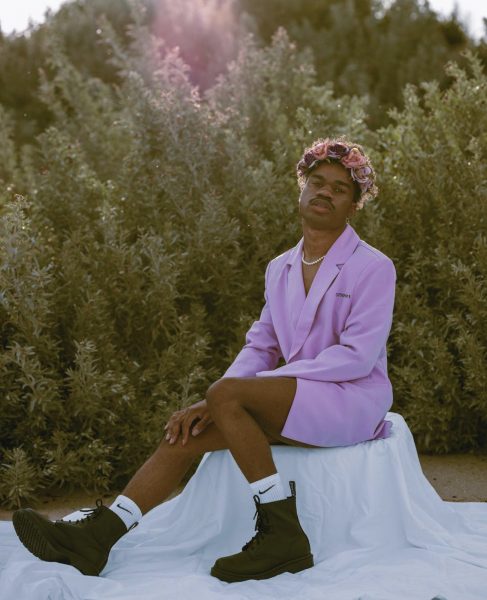
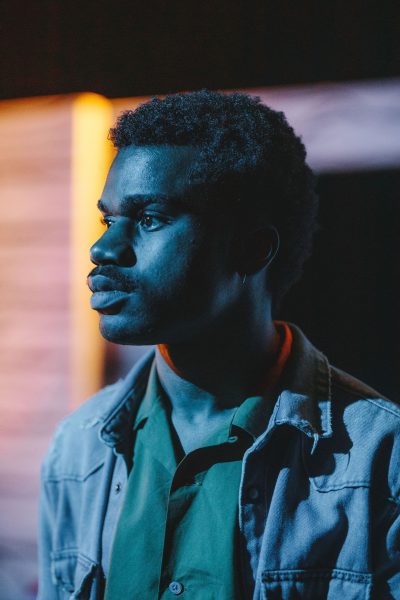
Who inspires your art?
I am inspired by the works of Toni Morrison, James Baldwin and Audre Lorde. They all had a very specific point of voice/view and weren’t afraid to speak truth to power, on a social, political and personal level. Which is something I aspire to.
Where do you feel most creative?
It’s so funny because I am a 24/7 type of creative. Creativity literally strikes me at any moment and sometimes in the most absurd places. But my favourite place to create is in my room, with 500 tabs open on my laptop and Beyoncé or Nina Simone playing softly in the background.
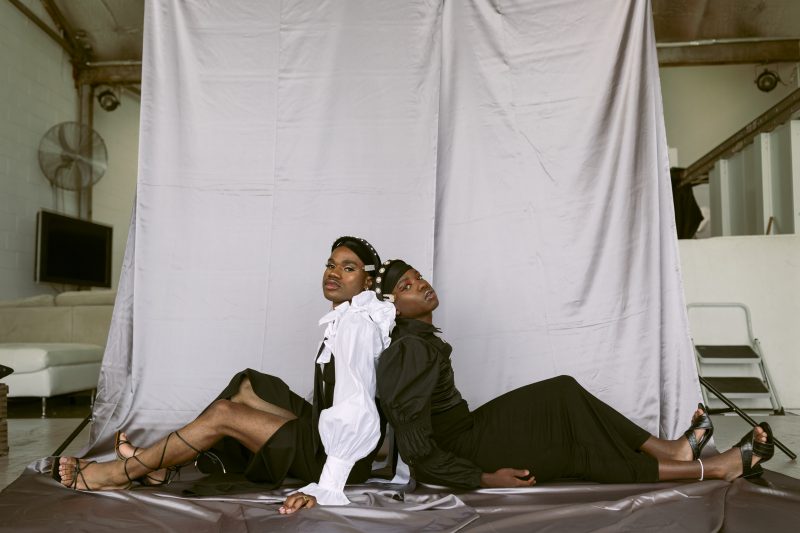
Whose work are you digging at the moment?
At the moment I am really digging the works of Issa Rae (Insecure is such a great depiction of life as young black person in contemporary era), Michaela Coel (I May Destroy You is one of the most honest and raw piece of work I’ve seen on television in recent years) and Tyler Mitchell (I don’t think anyone captures Black people is with such calm, vulnerability and richness).
What future projects are you looking forward to?
Currently working on the Aquarium Runway for Melbourne Fashion Week.
Early next year I’ll be presenting my play “Do Black Boys Go To Heaven?” as part of Melbourne Midsumma Festival. The play is a story about Remi a queer troublesome, ambitious, curious boy who won’t bend to the rules of his town or society. Set in a small town where nothing magnificent happens, a town where gentrification is taking form in “betterment of society”, where hatred hides it’s ugly face behind God’s name and legal authority crosses boundaries with extreme policing of basic human rights.
“Do Black Boys Go To Heaven?” is a play about rage, repressed trauma, purpose, truth, but at the core of it all this play predominantly explores the question “Where Do Black Boys Go For Healing?” In a world that deems them as disposable. I’m very excited to be presenting this story to an audience with my theatre company “Mwangaza Theatre”. More information to be announced soon at: https://www.mwangazatheatrecompany.com/
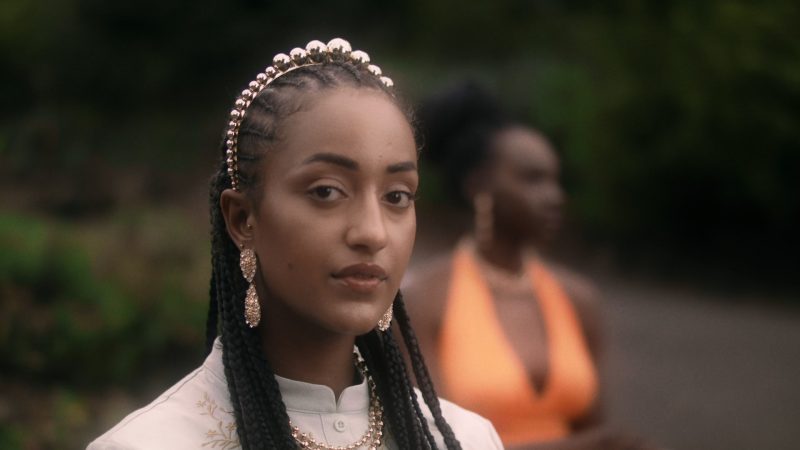
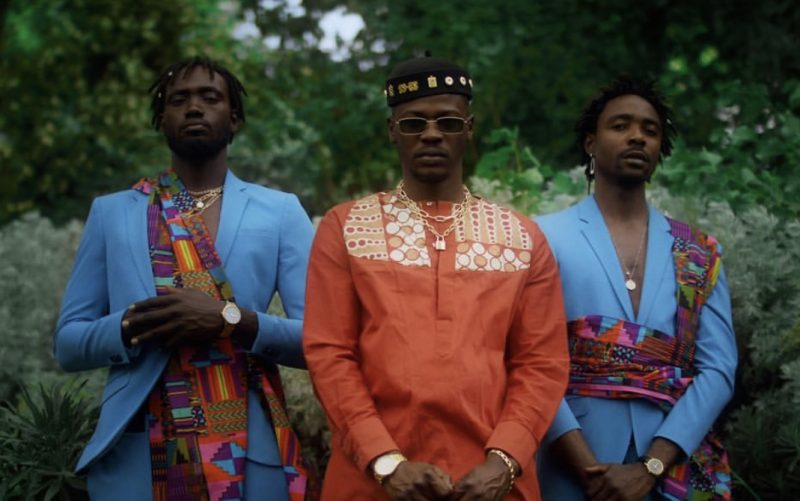
Where can we find and follow you online?
Website: https://www.gideonwilonja.com/
Instagram: @mwangazatheatre @cestdeon
Featured image: Soft – 2021 Wyndham Art Prize Winner – By Gideon D. Wilonja. All images courtesy of the artist.
